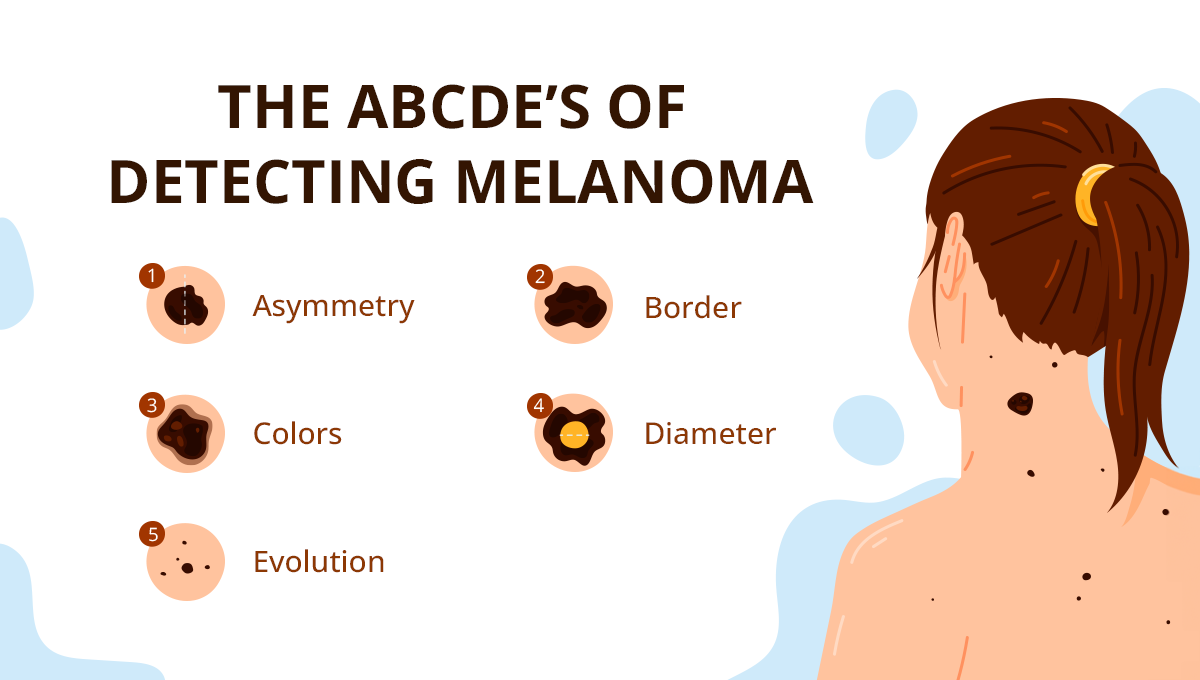 Are you wondering what causes moles to suddenly appear? Moles and freckles (dark spots) are common skin features, but their sudden appearance can be concerning. It's natural to wonder why these spots might pop up unexpectedly.
Are you wondering what causes moles to suddenly appear? Moles and freckles (dark spots) are common skin features, but their sudden appearance can be concerning. It's natural to wonder why these spots might pop up unexpectedly. This article explores potential causes (what causes red moles or what causes moles to grow) for the sudden emergence of moles and freckles. We will provide information to help you understand what causes skin moles and freckles.
What Are Moles and Freckles?
Moles and freckles are both common skin markings with different characteristics. Moles, also known as congenital nevi, are small, usually brown or black spots on the skin. They are caused by clusters of pigment-producing skin cells called melanocytes. Moles can be flat or raised, round or oval, and vary in size. Some people are born with moles, while others develop them later in life.
What causes freckles to suddenly appear? Freckles are smaller, flat brown spots that often appear in groups. Unlike moles, they are caused by an overproduction of melanin, the pigment that gives skin its color. Freckles are more common in people with fair skin and are often influenced by sun exposure.
There are different types of moles, including:
-
Common moles: These are the most common type, usually round, brown, and benign.
-
Dysplastic moles: Larger, irregular moles that can be a sign of increased skin cancer risk.
-
Congenital moles: Moles present at birth.
There are two main types of freckles including ephelides and solar lentigines.
-
Ephelides are the classic freckles, often appearing in childhood and influenced by genetics.
-
Solar lentigines, or age spots, are larger, brown spots caused by sun damage and appear later in life.
Monitor moles for any changes in size, shape, color, or texture, as these could be signs of skin cancer.
What Causes Moles on Skin
Genetics and Family History
A significant factor in mole development is genetics. If your parents or other family members have many moles, you are more likely to develop them as well. This suggests a genetic predisposition to mole formation.
Sun Exposure and UV Radiation
Excessive sun exposure is another key contributor to mole development. Ultraviolet (UV) rays from the sun can stimulate melanocytes, the cells responsible for producing melanin. This leads to the formation of new moles or the enlargement of existing ones. Protecting your skin from the sun with sunscreen and protective clothing is essential to prevent new mole development.
Hormonal Changes
Hormonal fluctuations can also influence mole growth. Puberty, pregnancy, and menopause are periods of hormonal changes that may contribute to the appearance of new moles. Hormonal contraceptives can also play a role in mole development for some individuals.
Common Freckles Causes
Genetic Predisposition and Ethnicity
A person's genetic makeup plays a significant role in freckle development. If you have family members with freckles, it's possible that you may develop freckles. Plus, people with fair skin, red or blonde hair, and blue or green eyes are more prone to freckles due to their genetic predisposition.
Sun Exposure and Solar Lentigines
The most common cause of freckles is sun exposure. When our skin comes in contact with the UV sun rays, it triggers the overproduction of melanin. Over time, this increased melanin can lead to the formation of freckles. Solar lentigines, also known as age spots, are a type of freckle caused by long-term sun exposure.
Other Contributing Factors
While genetics and sun exposure are the primary factors, other elements can influence freckle development. Hormonal changes, such as those during puberty or pregnancy, can temporarily increase freckle visibility. Certain medications might also affect melanin production, potentially leading to freckle formation.
Understanding these factors can help you protect your skin from excessive sun exposure and manage the appearance of freckles.
Potential Health Concerns and When to Seek Medical Advice
Signs of Atypical Moles and Skin Cancer:
-
Asymmetry: One half of the mole does not match the other
-
Border irregularity: The edges are ragged, notched, or blurred
-
Color: Uneven color, including shades of black, brown, red, white, or blue
-
Diameter: Larger than a pencil eraser
-
Evolving: Changes in size, shape, color, or height
If you notice any of these changes in a mole or freckle, consult a dermatologist for a proper evaluation. Early detection and treatment of skin cancer are essential for successful outcomes.
Preventive Measures and Treatment Options
Sun Protection Strategies
Protecting your skin from the sun is key in preventing the formation of new moles and freckles. Consistent use of broad-spectrum sunscreen with an SPF of 30 or higher is essential. Wearing protective clothing, such as hats and long sleeves, can provide shielding from harmful UV rays. Seeking shade during peak sun hours is also recommended.
Regular Skin Checks and Monitoring
Regularly examining your skin for changes in existing moles or the appearance of new ones is vital. Knowing your skin and tracking any alterations can help detect potential skin cancer early. Perform self-skin exams monthly and schedule professional skin checks with a dermatologist regularly.
Treatment Options
-
Mole and wart remover pens: These products can remove moles and warts. Follow instructions carefully and be aware of potential side effects.
-
Mole Remover Creams and Ointments: This is another painless option to remove moles. Although you are advised to consult a dermatologist before opting for these creams.
-
Professional removal methods: Dermatologists offer various treatments for moles and freckles, including:
-
Excision: Surgical removal of the mole
-
Shave removal: Removing the top part of the mole with a surgical blade
-
Laser therapy: Using a laser to target and remove the mole
-
Cryotherapy: Freezing the mole with liquid nitrogen
-
Chemical Peels: Help remove freckles and moles
The best treatment option depends on the type, location, and size of the mole or freckle. Consulting a dermatologist is crucial for determining the most appropriate approach.
FAQs Section
Why do moles suddenly appear?
New moles can appear due to various factors. It can be hormonal changes, sun exposure, or genetic predisposition.
Are new moles always a sign of skin cancer?
No, most new moles are benign. But it's essential to monitor for changes in size, shape, color, or texture. Any unusual changes warrant a visit to a dermatologist for evaluation.
Can freckles appear suddenly without sun exposure?
Sun exposure is the primary cause of freckles. But sometimes hormonal changes or certain medications can contribute to their sudden appearance.
How can I prevent new moles and freckles from appearing?
Consistent sun protection is key to preventing new moles and freckles. Use broad-spectrum sunscreen, wear protective clothing, and limit sun exposure, especially during peak hours.
What are the treatment options for removing moles and freckles?
Treatment options vary depending on the type, size, and location of the mole or freckle. You may try laser therapy, surgical removal, cryotherapy, and over-the-counter treatments.


